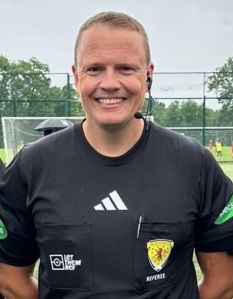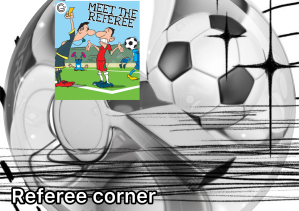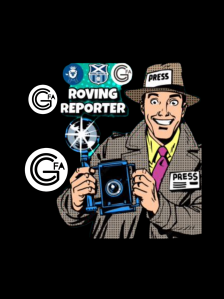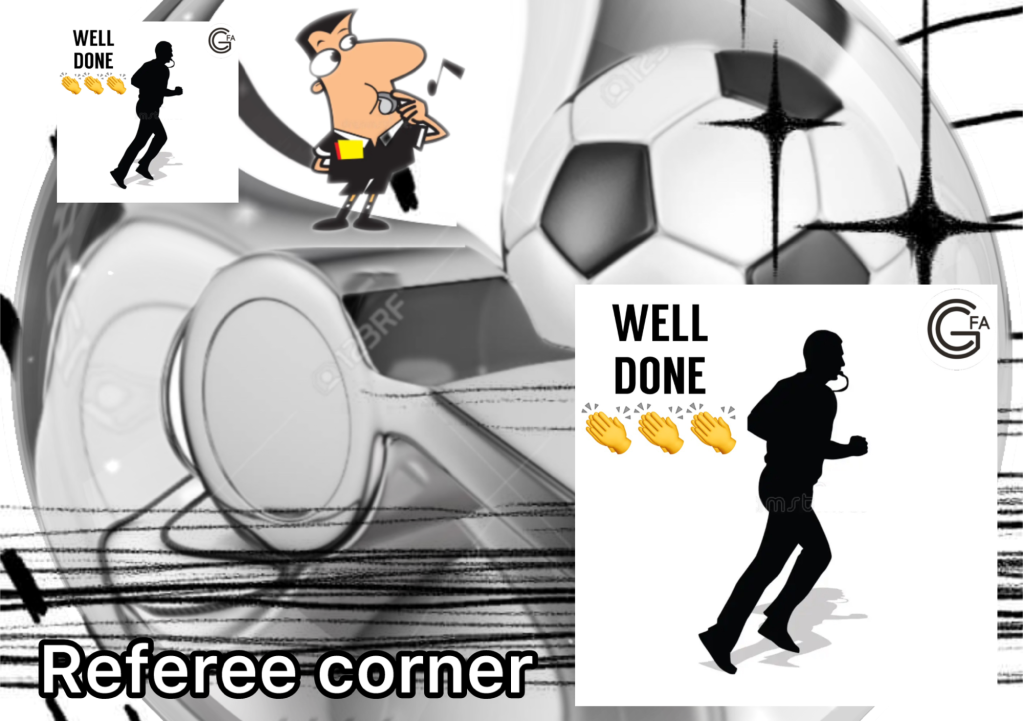REFS CORNER – Getting to know Victor Cannon
- Tanvansh Singh
- Mar 13
- 3 min read

CANNON BALL
Following on from us highlighting Victors excellent debut performance we get to know more about this new addition to GCFA referee roster

Why did you want to be a referee?
I wanted to stay involved in football while keeping fit. I stopped playing at 40 due to injuries and the longer recovery times, so refereeing was a great way to stay connected to the game.
How much do you enjoy football outside refereeing?
I love football and watch it whenever I can. I find myself not just watching the match but also analysing the referee’s performance—learning from their positioning, decisions, and how they manage the game.
How would you rate your eyesight?
Very good.
How much time in a normal week do you devote to football?
On average, about 10 hours, but this increases in the summer months with additional tournaments and competitions.
Tell us about your refereeing experience.
I referee at various levels, including Next Generation, CAS, and the Glasgow and District Youth League. I’ve also officiated Junior club bounce matches and run the line at a Celtic vs. Partick Thistle women’s first-team friendly. Additionally, I’ve refereed at the Pan Disability League in Grangemouth, the Glasgow Cup, and the Ayr International Cup. I’m currently completing the SFA Advanced Referee Course to further develop my skills.
What is your favourite outside football sport?
Mountain biking.
Where do you see yourself in five years?
In terms of refereeing, I want to continue developing and enjoying the game as much as I do now.
What do you enjoy most about being a referee?
Allowing people to play the game. A well-officiated match ensures the focus stays on football, and I enjoy being a part of that.
What do you like least about being a referee?
Half-time—I prefer being on the park, managing the game.
What qualities are essential for a referee?
Calmness, resilience, strong communication skills, and adaptability.
How do you handle stressful situations?
I always stay calm and collected. Talking to people is vital, and I try to de-escalate situations whenever possible. Using humour can also help ease tension.
How do you prepare for a match that you will be refereeing?
I read up on both teams, arrive early to complete pre-match checks, warm up, and introduce myself to both teams. Building rapport before the match helps manage the game more effectively.
What is your opinion on the use of technology in refereeing?
I think it can be useful in supporting decisions, but it has to be implemented correctly to enhance the game rather than disrupt it.
What do you think is the most challenging aspect of refereeing?
Offside, particularly in matches without assistant referees. It’s one of the most difficult calls to make accurately on your own.
What do you think is the most important thing for a referee to know about the game they are officiating?
Understanding the dynamics within both teams is crucial. Knowing the players and building good relationships, especially when refereeing in a particular league regularly, helps with match control.

Once again it is good to get to know the man in the middle highlighting that they too love football & deserve respect for doing not only a hard job but a role crucial to the future of amateur football.
Thanks Victor for answering our questions and good luck in your future football career





Comments